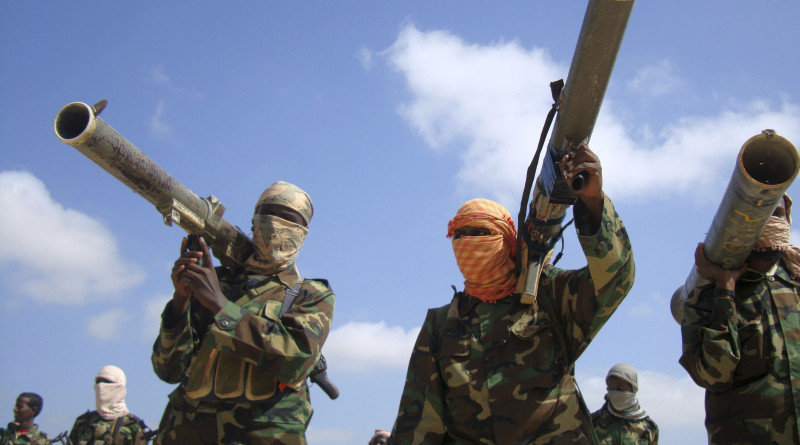
Creating franchises among groups claiming affiliation with al Qaeda or the so-called Islamic State in Iraq and Syria (ISIS) is among the biggest change in international terrorism, two leading experts told the Atlantic Council on Thursday.
Bruce Hoffman, director of security programs at Georgetown University, said the United States missed that shift of terrorist groups willing to “hitch their fortunes to al Qaeda’s star” after the Sept. 11, 2001 attacks on New York and the Pentagon. “We made exactly the same mistake” with groups like Boko Haram in Nigeria, al Shabab in Somalia and others in Egypt and Libya now claiming affiliation with ISIS.
With so many groups — possibly 17 — operating out of geographically diverse strongholds, Bruce Riedel, director of intelligence programs at the Bookings Institution, asked the Washington audience where does the United States place “its finite number of analysts, its finite number of drones” to keep tab on them.
For al Qaeda — who plan large dramatic attacks for its long-term benefit — and ISIS — who act for immediate gain and shock — terrorism appears to pay off as it did with the bombings of the American embassy and Marine barracks in Lebanon in 1983. Those operations cost little, but succeeded in having the Marines leave Beirut a few months later. Similarly, the 2001 attacks cost about $500,000 and the United States spent $5 trillion in response, including fighting long wars in Afghanistan and Iraq, both said.
Hoffman said that while al Qaeda’s leader Ayman al Zawahiri has been quiet for months the group is clearly working to attract support in South Asia — from the Indian subcontinent to Burma to Indonesia.
He cited a recently spoiled al Qaeda plot to infiltrate the crew and officer cadre of a Pakistani guided missile frigate, seize it, steam into areas where coalition navies are conducting anti-piracy patrols and then fire on an America warship “preferably an aircraft carrier” an attack that “that would have provoked a naval war” between the two countries.
Riedel, who worked for decades as a CIA analyst, said, “We need a holistic approach” to countering terrorists. “We need hard power. We need drones. We need SEAL teams” but couple that with an approach that support progressive reforms in countries ruled by autocrats and understands the value of a “two-state solution” to settle the Israeli-Palestinian question.
Hoffman said “decapitation [killing leaders] has failed” as a means to curb terrorism. It “is more important to degrade infrastructure.” He noted that agencies such as the CIA, FBI and National Geospatial Intelligence have been adapting to a changing threat environment.
“Avoid premature declarations of victory” or “proclaiming the demise of al Qaeda,” Riedel said and compared those to self-inflicted wounds.
The United States government also has to recognize some things “are outside of America’s control.” Riedel used the Arab Spring as an example.
The movement began hopefully in a belief that democratic governments would emerge, but then the belief and new governments failed for a number of reasons, followed by a counter-movement to roll back political and economic changes as in Egypt that in other cases led to the collapse of states, such as Libya.
In Yemen, Riedel said Saudi Arabia is learning the limits of airpower in trying to take back territory from the Houthi insurgents who in rallying around former President Ali Abdullah Saleh not the Iranians now control its capital and have surrounded the port city of Aden.
Pakistan has backed away from supplying ground forces to the Saudi campaign, but “they may be able to get Egypt” to send troops.
The lesson for the new Saudi king is “it is easy to get into war. It is hard to get out of them,” Riedel said.
Among the questions facing a new American government when it takes office in 20 months will be whether ISIS will go underground in Iraq as al Qaeda did and what will conditions be like in Afghanistan and Pakistan when coalition forces leave.
NATO operations in Afghanistan proved extremely useful in showing how to integrate forces under combat conditions but “that out-of-theater mission was one too many” for many governments, including Great Britain which is cutting its land forces and trimming defense spending, Riedel said.
While both said America’s defenses against terrorism have improved significantly since 9-11, there have been lapses — the killings at Fort Hood, Texas; the failed bombing attempt in Manhattan’s Times Square , uncovered by vendors not police and the bombing near the finish line of the Boston Marathon.
Following the Boston bombing, much of the metropolitan area was shut down. “I think we’re less resilient than we were,” Riedel said in response to an attacks that was of completely different magnitude than the Sept. 11, 2001 attacks that claimed almost 3,000 lives.





